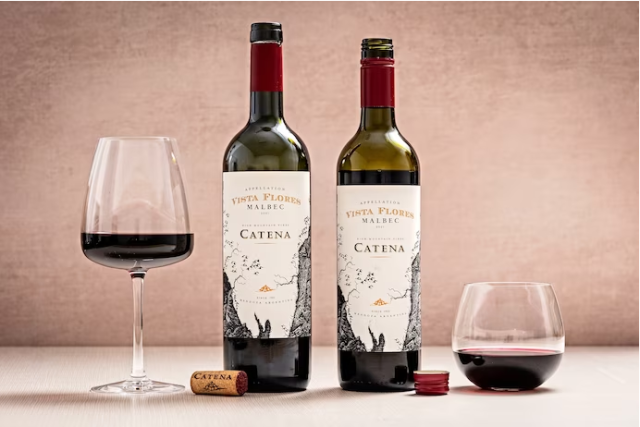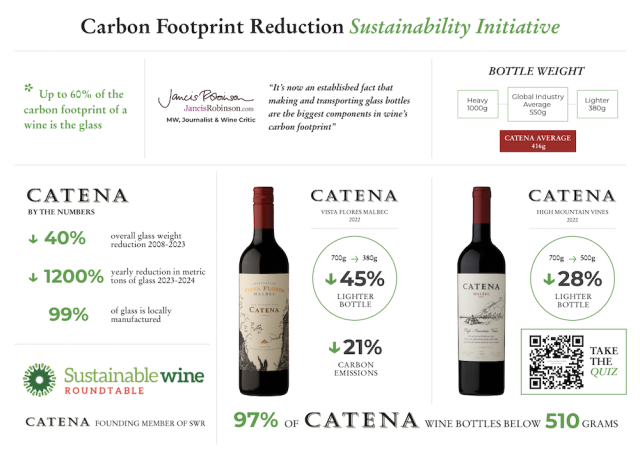This website uses cookies so that we can provide you with the best user experience possible. Cookie information is stored in your browser and performs functions such as recognising you when you return to our website and helping our team to understand which sections of the website you find most interesting and useful.
How Catena Zapata is changing the game on lightweight bottles
Bodegas Catena Zapata has announced an education campaign to promote lighter wine bottles, alongside its own work on the issue, which it believes plays a critical role in the future sustainability of the sector.

The news comes as Catena’s Malbec’s 45% lighter bottle is now being poured at the producer’s restaurant Angélica in Mendoza, and sold in the USA and Holland.
An education campaign for the trade and consumers now aims to shift the dial on the concept of light bottles, with the average weight of a wine bottle being 550g when empty.
Reduction
Catena’s bottles are currently 416g on average, and the producer is now reducing it to 380g for one of its Malbec brands. The move has created an overall average CO2 emissions reduction of 21% before consideration of logistics, including marine transportation.
It’s High Mountain Vines Malbec and Cabernet Sauvignon have been reduced from 700 to 500 grams, representing more than a quarter (28%) reduction in glass weight.
As a result of the moves, Catena Family Wineries now averages a reduction of 1,200 metric tons of glass in total per year, and has reduced bottle weight by more than 40% from 2008 to 2023.
Local initiatives

The vast majority (99%) of Argentine wine glass is produced either in the country or Chile, and the firm is working with manufacturers including Verallia to reduce bottle weight.
It is also working with LSQA to create a carbon calculator that will be shared widely with Argentina’s wine producers.
Just over a decade ago, Catena shared its in-house sustainability code with Bodegas de Argentina, a local group which includes hundreds of wineries, to establish the Bodegas de Argentina Sustainability Code. Catena was the first winery to certify, and today hundreds of Argentine wineries are enrolled, it claimed.
The Catena Institute of Wine is also studying ways to reduce carbon emissions by sequestering carbon in the vineyards, by planting trees and preserving native forests, by measuring inputs and outputs and by studying alternative energies.
In addition, the firm is a founding member of the Sustainable Wine Roundtable, a UK-based think tank that enables collective action across the wine value chain to develop tools and best sustainable practices.
Education

As part of its launch of Catena Appellation Vista Flores Malbec, the 45% lighter bottle launch in 2024 will be accompanied by an education campaign for restaurant staff and consumers.
The company is also bottling all of its appellation brand wines to a Dutch retailer Gall and Gall in lighter glass too. In-store displays and staff training will educate consumers about the environmental benefit of ultra-light bottles, it said.
The move also comes as it aims to break the link between premium wines and heavier bottles, with its luxury High Mountain Vines wines transitioning to a new 33% lighter bottle, which is a taller and thinner, but still elegant in appearance. Its 2024 release will be accompanied with a sales, trade and consumer campaign to importers spanning the Americas, Europe and Australasia.
Industry reaction
The news comes as the producer has highlighted Jancis Robinson’s comment that “it’s now an established fact that making and transporting glass bottles are the biggest components in wine’s carbon footprint.”
Its Catenamics sustainability programme forms the core of its wine making and growing philosophy, with the management of the connection between plants, soil, ecosystem, and people.

